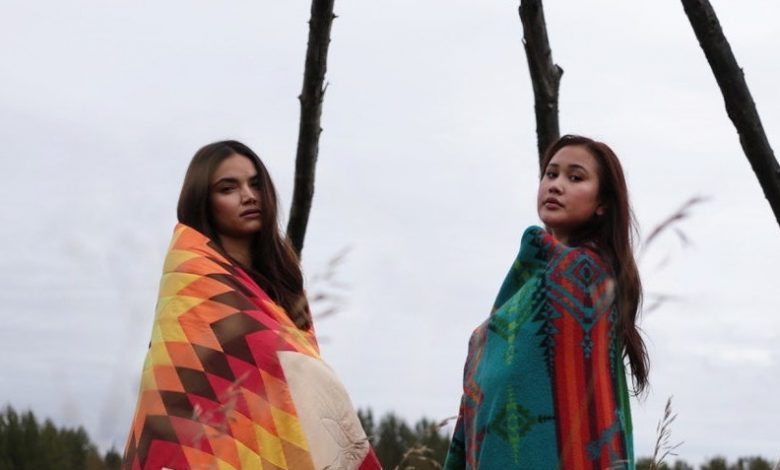This Indigenous Peoples’ Day, Support Authentic Native Artists

vogue– Growing up on Nipissing First Nation, my traditional territory, I remember that my aunties would always be cooking or making something. On my mom’s side, I come from a large family of 18 aunts and uncles—we’re one big, loud, crazy Ojibwe family—and we would often all gather at my grandmother Leda’s house. There, my aunties would often be sewing or making quilts, dream catchers, moccasins, or mittens for the winter, or even regalia for those of my cousins who dance in powwows.
I was brought up around the idea of maintaining traditional craftwork. Indigenous design isn’t relegated to historical artifacts; traditional techniques such as beadwork, quillwork, and hide tanning are still being innovated upon and incorporated into the work of Indigenous artists today. It never dawned on me that people don’t know that Indigenous goods are, yes, still being made. I recently gifted a friend a dream catcher made by my aunt, and she couldn’t believe it was completely handmade. Lack of visibility has perpetuated this idea. Many Indigenous artists or designers live in remote areas and for a long time have not had the resources, or technology, to sell their work on a global scale. This is true even for my own family. While my aunties always had no problem selling their items among family members—someone is always looking for something—they primarily sold their work on the powwow circuit, or through good ol’ word of mouth.
But that’s all changing now: With the rise of e-commerce and social media, not to mention global fashion weeks like Indigenous Fashion Week Toronto, it’s easier than ever to find authentic, Indigenous-owned brands. The Indigenous fashion scene has grown and expanded rapidly. Now, one can now find everything from jewelry and textiles to streetwear and swimwear—the through line being that Indigenous brands continue to carry on a sense of sustainability and eco-mindedness, while honoring their tribe’s unique customs. With one tap on Instagram, artists can now share their pieces and provide the rich stories or context behind them, so that their consumers are educated about the piece that they are purchasing. Non-Indigenous brands have long co-opted Indigenous design motifs and used sacred elements, such as headdresses, in harmful, culturally appropriative ways; by shopping Indigenous, you are guaranteed a more respectful exchange.
Seeing as how today is Indigenous Peoples’ Day, there’s no better time to get to know a few Indigenous brands. Jewelers like Robin Waynee, for instance, are fusing luxurious stones and diamonds with traditional materials. Cheekbone Beauty, Prados Beauty, and Ah-Shí Beauty are offering eye palettes and lip gloss. Clothing brands such as Lauren Good Day or Ginew, an Indigenous denim line, are proving that traditional Indigenous design can still be contemporary.




